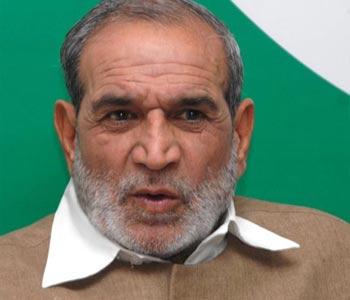New Delhi, April 24: Senior Congress leader Sajjan Kumar and Delhi Police were involved in a conspiracy of "terrifying proportions" during the 1984 anti-Sikh riots, CBI has told a trial court.
Sajjan Kumar and five others, Balwan Khokkar, Kishan Khokkar, Mahender Yadav, Girdhari Lal and Captain Bhagmal are facing trial for killing six people in the Delhi cantonment area during the riots. The trial court, in 2010, had framed charges against Sajjan Kumar and five others under Sections 302 (murder), 395 (dacoity), 427 (mischief to cause damage to property), 153A (promoting enmity between different communities) and other provisions of IPC.During the hearing, the prosecutor said that as per the police records, not even a single killing took place from October 31 to November 6, 1984, while the GT Nanavati Commission showed a different picture. He said a former police constable, who is now a defence witness, had deposed in the court that he was on duty in the area during the riots and he had not come across any report of any killing or rioting.
"But as per GT Nanavati Commission report, the official casualty figures shows that during the riots 341 persons were killed, while 385 houses, 110 shops and 45 vehicles were burnt in the area," he said, adding that the attitude of police was to minimize the magnitude of the crime.The prosecutor also said the killings were committed on Sajjan Kumar's directions. "In this case, the circumstances clearly show conspiracy and Sajjan Kumar is charged for the offence of conspiracy. Delhi Police is also accused of conspiring with others but no official has been named," he said.The CBI had earlier said police acted in a pre-planned manner during the riots and kept its "eyes closed" to the widespread violence.It had said police "deliberately" did not act the way it was supposed to do.






Comments
Add new comment